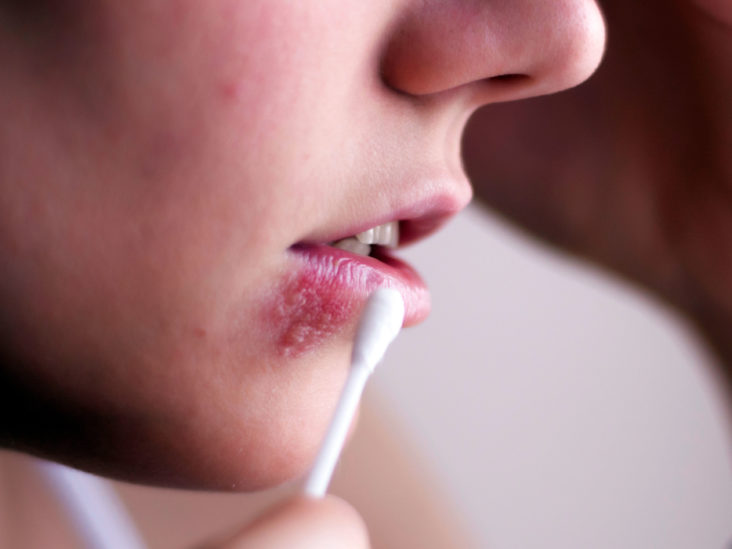A few days ago, while scrolling through social media as i am wont to do, I came across a post berating a certain American rapper for announcing that he had Herpes.
The reactions were mostly angry and disparaging and from reading them i realised that many people do not know a lot about Herpes.
The word itself “Herpes” already sounds like something bad and something no one wants to have, thanks to it’s sexually transmitted AND “incurable” nature. Once you have the virus, it stays in your body. It will not spread in your body to cause blisters elsewhere. It stays in a nearby nerve and causes blisters in the same area.
Genital herpes is one of the most common sexually transmitted infection (STI) passed on through vaginal, anal and oral sex. It is caused by the herpes simplex virus (HSV). Most cases of genital herpes are caused by infection by the herpes simplex virus type 2 (HSV-2). Herpes simplex virus type 1 (HSV-1) is more often the cause of cold sores or fever blisters.
Many people are used to what is usually referred to as a “fever blister” or cold sore. You know the one that appears on the corner of the mouth in some people when they feel even slightly unwell. Many people do not know that this is also a sign of herpes infection. So one very simple way to think about genital herpes is a cold sore, but “down there”. Because both oral and genital herpes are caused by different strains of the same virus and are transmitted in the same way.
Symptoms
Many people who have genital herpes remain undiagnosed because they do not have any major symptoms. Symptoms might not appear for weeks or even years after you’re infected with the herpes virus.
Some symptoms to look out for include:
- small blisters that burst to leave red, open sores around your genitals, anus, thighs or bottom
- tingling, burning or itching around your genitals
- pain when you pee
- in women, vaginal discharge that’s not usual for you
These can be symptoms of genital herpes and should prompt a visit to a sexual health clinic or your regular physician.
Go even if you have not had sex for a long time, as blisters can take months or years to appear.
What happens at a sexual health clinic
The doctor or nurse at the sexual health clinic will:
- ask about your symptoms and your sexual partners
- use a small cotton bud (swab) to take some fluid from 1 of your blisters or sores for testing
Unfortunately, the test cannot:
- be done if you do not have visible blisters or sores
- tell you how long you have had herpes or who you got it from
Treatment for genital herpes
There’s no cure. As scary as this may sound, we must bear in mind that there are so many viruses and bacteria that exist in nature that modern science has still found no cure for. And this particular virus has a very mild course of presentation that is hardly life threatening.
Symptoms clear up by themselves, but the blisters can come back (an outbreak or recurrence). Some people have more frequent outbreaks than others and there is no way to determine who will have frequent outbreaks or not.
Treatment can help.
You may be prescribed:
- antiviral medicine to stop the symptoms getting worse – you need to start taking this within 5 days of the symptoms appearing
- cream for the pain
If you have had symptoms for more than 5 days before you go to a sexual health clinic, you can still get tested to find out the cause.
Antiviral medicine may help shorten an outbreak by 1 or 2 days if you start taking it as soon as symptoms appear.
But outbreaks usually settle by themselves, so you may not need treatment. Recurrent outbreaks are usually milder than the first episode of genital herpes.
Over time, outbreaks tend to happen less often and be less severe. Some people never have outbreaks.
How to deal with outbreaks yourself
If you have been diagnosed with genital herpes and you’re having an outbreak:
Do
- keep the area clean using plain or salt water to prevent blisters becoming infected
- apply an ice pack wrapped in a flannel to soothe pain
- apply petroleum jelly (such as Vaseline) or painkilling cream (such as 5% lidocaine) to reduce pain when you pee
- wash your hands before and after applying cream or jelly
- pee while pouring water over your genitals to ease the pain
Don’t
- do not wear tight clothing that may irritate blisters or sores
- do not put ice directly on the skin
- do not touch your blisters or sores unless you’re applying cream
- do not have vaginal, anal or oral sex until the sores have gone away
If you can, avoid things that trigger your symptoms.
Triggers can include:
- ultraviolet light – for example, from sunbathing or sunbeds
- friction in your genital area – for example, from sex (lubricant may help) or tight clothing
- Smoking
- drinking alcohol
Some triggers are unavoidable, including:
- being unwell
- Stress
- during the menstrual cycle
- surgery on your genital area
- a weakened immune system – for example, from having chemotherapy for cancer
You can reduce the chances of passing herpes on by:
- using a condom every time you have vaginal, anal or oral sex – but herpes can still be passed on if the condom does not cover the infected area
- avoiding vaginal, anal or oral sex if you or your partner has blisters or sores, or a tingle or itch that means an outbreak is coming
What to do if your partner or someone you know tells you they have HSV.
- The most important thing to do is educate yourself. You can go with your partner to a sexual health clinic and speak to a healthcare professional who can tell you all about HSV and what to expect and also answer any questions you might have.
- You may also look up resources on HSV online.
- You should also get tested, but unfortunately in most countries the test can only be done if/when you have visible blisters.
- Remember that as much as HSV is a sexually transmitted disease, it is mostly spread by contact with an infected sore, so even people who practice safe sex can get this virus. Also because the symptoms can take time to show up, having a partner who is symptomatic doesn’t mean that they are currently being unfaithful.
It is important to end the stigma around Herpes and other sexually transmitted diseases because stigma only serves to stop people from getting tested or sharing their status with their partners, therefore increasing the rate of spread of the virus.








